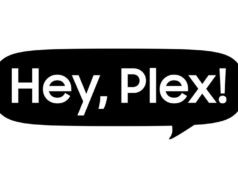NEWS ANALYSIS: A BuzzFeed profile has very publicly called out Twitter for refusing to rein in abusive and threatening language purely in the name of free speech.
An extensive BuzzFeed profile puts the spotlight on Twitter’s decade-long policy of tolerating abuse and hate speech in the interest of supporting free speech. Some might say Twitter is exhibiting a blind deference to an open-ended definition of free speech.
The issue is coming to a head because of recent high-profile incidents and because of the enormous reach of Twitter’s social network, which has been increasingly used by large enterprises as a marketing channel. In the U.S. today, 66 percent of all companies with 100 or more employees use Twitter for their marketing, including 83 percent of the Fortune 500 companies, according to Brandwatch.
Yet it’s a platform that has, Charlie Warzel writes in the Aug. 11 BuzzFeed profile, “made an ideology out of protecting its most objectionable users.”
While Facebook CEO Mark Zuckerberg leapt to publicly respond to a single accusation of political bias, Warzel details countless time that Twitter leadership has shrugged off—if they’ve responded at all—reports of incessant abuse, with comments that amount to, “Yeah, we stink at that.”
In July, when “Ghostbusters” actress Leslie Jones announced she was taking a break from Twitter, after suffering a deluge of stunningly offensive comments, Twitter CEO Jack Dorsey reached out to her and very soon afterward implemented a little blue “Verified” icon that verifies a well-known personality and builds in a few filters for keeping out spam and blocking offensive users.
But it’s the very rare user, with the possible exception of just President Barack Obama and Caitlyn Jenner, who has felt his or her complaints have been heard by Twitter.
Days after Dorsey reached out to Jones, writer Jessica Valenti told her 120,000-plus followers that waking up to a “rape and death threat directed at my 5 year old daughter” was the last straw. “I am sick of this s–t,” Valenti tweeted. “Sick of saying over and over how scary this is, sick of being told to suck it up.”
Warzel reports that Twitter’s practices weren’t simple laziness, but a policy.
Ev Williams, Biz Stone and Jason Goldman worked at the Google-owned Blogger before moving to Twitter and they brought with them the philosophy established by Google attorney Alexander Macgillivray, a “die-hard speech advocate,” writes Warzel.
Warzel reports that Blogger made a core principle of the universal right to publish, despite outside criticism. “We don’t get involved in adjudicating whether something is libel or slander,” Goldman told Forbes in 2005.
After Zelda Williams quit Twitter to avoid the disturbing photo-shopped images of her father’s death that Twitter trolls were sending her, Twitter announced it would removed certain imagery of deceased loved ones, out of respect to their families.





![[Interview] [Galaxy Unpacked 2026] Maggie Kang on Making](https://loginby.com/itnews/wp-content/uploads/2026/02/Interview-Galaxy-Unpacked-2026-Maggie-Kang-on-Making-100x75.jpg)